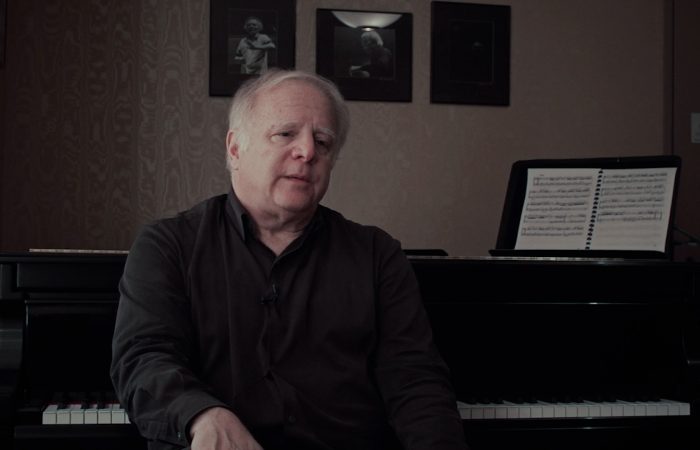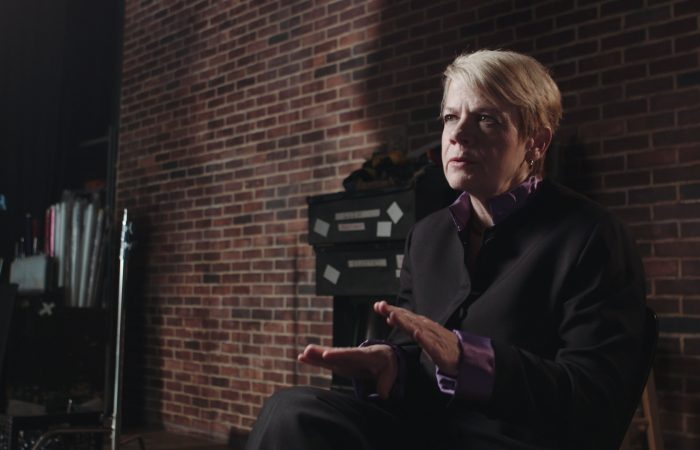
Cast & Crew
H. PAUL MOON
Director / Cinematographer / Editor
H. Paul Moon is based in Washington, D.C. Focusing on music and visual art documentary profiles, he also creates experimental films of cities, landscapes and contemporary dance. He teaches courses on documentary editing to emerging filmmakers, and manages a network of online communities at focuspulling.com that keeps pace with newest camera technologies, lately virtual reality. His body of work includes short and feature-length documentaries, dance films, and experimental cinema, regularly featured at film festivals worldwide. He worked as a small camera specialist for a Paramount feature film starring Will Ferrell and Mark Wahlberg, and as cinematographer for director Josephine Decker’s film in collective:unconscious. His recent films include Sitka: A Piano Documentary, about the craftsmanship of Steinway pianos, and Quartet for the End of Time, about Olivier Messiaen’s transcendent wartime composition. He is currently finishing another documentary feature about Western folklife, cowboy poetry, and the American frontier. His portfolio is at zenviolence.com.
BARBARA B. HEYMAN
Consulting Producer
Barbara B. Heyman, musicologist and editor, has written and lectured extensively about Samuel Barber. Her book Samuel Barber: The Composer and His Music (Oxford University Press, 1992) won the ASCAP-Deems Taylor Award and is considered the definitive biography of the composer. She has subsequently created Samuel Barber: A Thematic Catalogue of the Complete Works (Oxford University Press, 2012) and is currently preparing her second edition of the biography.
PIERRE BRÉVIGNON
Consulting Producer
Pierre Brévignon is the author of Samuel Barber: un nostalgique entre deux mondes. Born in 1971 in Paris, he first worked in publishing before becoming a translator. His passion for classical music led him to contribute to the programs of the Paris Opera in 2005 and publish a dictionary of classical music (with Olivier Philipponnat, edition Castor Astral, 2nd edition 2008). Since 2009, he leads Capricorn, the Friends of Samuel Barber, organizing concerts and conferences in France devoted to the composer.
LEONARD SLATKIN
Conductor
Internationally acclaimed conductor Leonard Slatkin is Music Director of the Detroit Symphony Orchestra (DSO) and the Orchestre National de Lyon (ONL). He also maintains a rigorous schedule of guest conducting and is active as a composer, author, and educator. Slatkin’s more than 100 recordings have garnered seven Grammy awards and 64 nominations. A recipient of the prestigious National Medal of Arts, Slatkin also holds the rank of Chevalier in the French Legion of Honor. He has received Austria’s Decoration of Honor in Silver, the League of American Orchestras’ Gold Baton Award, and the 2013 ASCAP Deems Taylor Special Recognition Award for his book, Conducting Business. He is the world’s leading advocate and interpreter of Samuel Barber’s music.
MARIN ALSOP
Conductor
Born in New York City, Marin Alsop attended Yale University and received her Master’s Degree from The Juilliard School. Her conducting career was launched when, in 1989, she was a prize-winner at the Leopold Stokowski International Conducting Competition and in the same year was the first woman to be awarded the Koussevitzky Conducting Prize from the Tanglewood Music Center, where she was a pupil of Leonard Bernstein. Her outstanding success as Music Director of the Baltimore Symphony Orchestra since 2007 has been recognized by two extensions in her tenure, now confirmed until 2021. On the Naxos label, she has recorded Samuel Barber’s complete orchestral works, and is a longtime advocate of the composer around the world.
THOMAS HAMPSON
Baritone
Thomas Hampson, America’s foremost baritone, hails from Spokane, Washington. He has received many honors and awards for his probing artistry and cultural leadership. Comprising more than 150 albums, his discography includes winners of a Grammy Award, five Edison Awards, and the Grand Prix du Disque. Thomas Hampson enjoys a singular international career as an opera singer, recording artist, and “ambassador of song,” maintaining an active interest in research, education, musical outreach, and technology. Through the Hampsong Foundation which he founded in 2003 he employs the art of song to promote intercultural dialogue and understanding. With the Emerson String Quartet and John Browning, he recorded the complete songs of Samuel Barber in 1994 on the Deutsche Grammophon label.
JOHN CORIGLIANO
Composer
John Corigliano continues to add to one of the richest, most unusual, and most widely celebrated bodies of work any composer has created over the last forty years. Corigliano’s scores, now numbering over one hundred, have won him the Pulitzer Prize, the Grawemeyer Award, five Grammy Awards, an Academy Award, and have been performed and recorded by many of the most prominent orchestras, soloists, and chamber musicians in the world. Corigliano’s music is performed widely on North American and international stages. In recent years his music has been featured in performances throughout the US and Europe, Caracas, Melbourne, Shanghai, Beijing, Tokyo, Krakow, Toronto, Bosnia, and beyond. Corigliano serves on the composition faculty at the Juilliard School of Music and holds the position of Distinguished Professor of Music at Lehman College, City University of New York, which has established a scholarship in his name. He was a friend of Samuel Barber.
THOMAS LARSON
Author
Journalist, critic, and memoirist, Thomas Larson is the author of The Saddest Music Ever Written about Samuel Barber’s Adagio for Strings, as well as The Sanctuary of Illness and The Memoir and the Memoirist. He is a long-time staff writer for the San Diego Reader, Book Reviews Editor for River Teeth, and a regular contributor to The Truth Seeker, America’s oldest free-thought magazine. An active member of AWP and Nonfiction Now, he teaches in the MFA Program in Creative Nonfiction at Ashland University, Ashland, Ohio.
























